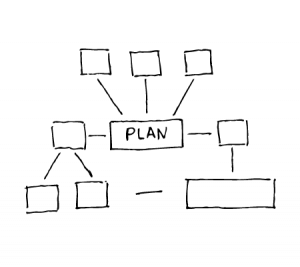Despite initial concerns that coronavirus could cause irreparable harm to MBA programs, the latest data show the complete opposite. Indeed, the surge in MBA applications because of Covid is leading to ever stronger class profiles with several schools reporting rising GMAT scores and enrolment of women and other minority candidates, including international students.
This raises the competition for an MBA place, however, meaning that prospective students need to find ways to stand out in the application process. However, there is an upside, as students learn not only from their professors, but also from their peers. They want to study alongside people from a diverse range of backgrounds, who have had various experiences in different industries.
“When you’re analyzing a case study about Fortune 100 company, you want someone in your class that has worked there,” says Shelly Heinrich, associate dean for MBA admissions at Georgetown McDonough School of Business in Washington, DC. “When you’re talking about best practices in brand management, you want people who have managed brands.”
At Georgetown, the school has had a very strong applicant pool this year. The average GMAT among applicants was up 17 points, for women it was up 32 points, for underrepresented US minorities it was up 19 points, and for international students it was up 13 points.
“We were simultaneously more selective, decreasing our admit rate by nine percent, and were more attractive, increasing yield by seven percent, which led to the significant increase in GMAT score,” says Heinrich. “We also had a strong number of deferrals from the previous year, meaning there were less spots in the class to begin with. It made every single open seat very competitive.”
More diversity in some MBA programs
It is a story being played out at business schools across the US and elsewhere. The University of Michigan Ross School of Business reported historic gains for women in its MBA, with 46 percent of the class being women, up from 43 percent last year.
“This is a record percentage of women in our full-time MBA class. It was achieved by continuing to execute our strategy of focused recruiting efforts and in particular, leveraging our students and alumni from different affinity groups,” says Soojin Kwon, managing director of the full-time MBA program and admissions at Ross.
This was also the most competitive application year on record for the school. “We received near-historic application volumes,” says Kwon. “The GMAT average of applicants was at a record high. Selectivity was at a record 20 percent. We also saw a record number of applications from underrepresented minorities, the US, Africa, India and the Middle East.”
It was a similar story at NYU Stern School of Business in New York, which reported a new record GMAT average, 729. Applications also rose by 8 percent and the school enrolled 360 students in the Class of 2023, up from 317 last year.
Lisa Rios, Stern’s assistant dean of MBA admissions, puts the gains down to the combination of a more seamless process for applicants and strong demand for MBA places. “For the 2020-2021 admissions cycle, NYU Stern continued to adopt an applicant-centric approach, including adding three new standardized test options — LSAT, MCAT and DAT — to the existing GMAT, GRE and Executive Assessment,” she says.
Additionally, last year, Stern offered a standardized test waiver in response to the coronavirus pandemic for those whose ability to prepare for or take a standardized test was impacted. This will continue during the current admissions cycle.
The importance of emotional intelligence in MBA admissions
But applicants still need to demonstrate academic readiness, and Stern places a heavy emphasizes on emotional intelligence in the admissions process. “This type of environment is paramount to success in the program and the value of the MBA network,” says Rios. “The students’ classmates are the people they will learn from, be in clubs with, work on experiential learning projects with, and in many cases work with after graduation.”
At Toronto’s Rotman School of Management, recent diversity efforts have increased black applicants to the MBA program by 25 percent. “The peer group is critical to the Rotman MBA experience,” says Joseph Milner, vice-dean of MBAs at the Canadian school. “We build our diverse class taking into account the experiences and backgrounds of our applicants. We then mindfully divide the students into sections, paying attention to the multiple dimensions of how students define themselves.”
In addition, for the Class of 2021, Rotman made the strategic decision to cut the size of the cohort and increase the diversity of careers to better align with the job market. As a result, the graduating Class of 2021 achieved a 97 percent employment rate three months after graduation.
This will make an MBA more attractive to those people seeking a career boost, but it is ever more competitive to secure a business school place. Admissions directors say they take a holistic approach when evaluating pitches, but some elements can help would-be MBAs to stand apart from the pack.
Milner says: “We look for intellectual horsepower, experience, impact, communications, presence, and a ‘spike factor’ – something that the applicant sees as defining themselves uniquely. All of these are looked at and weigh in the admissions decision.”










